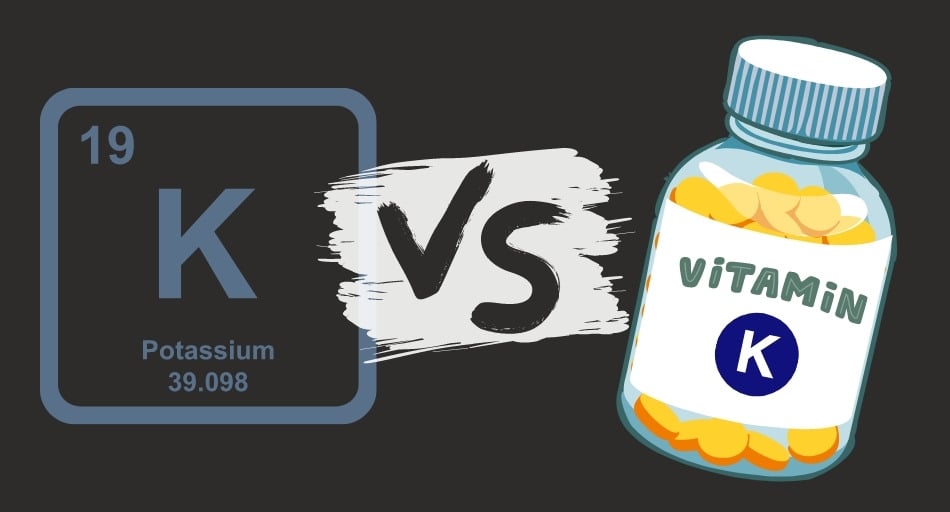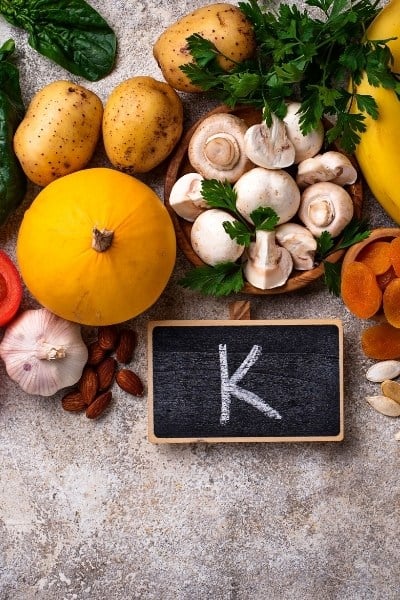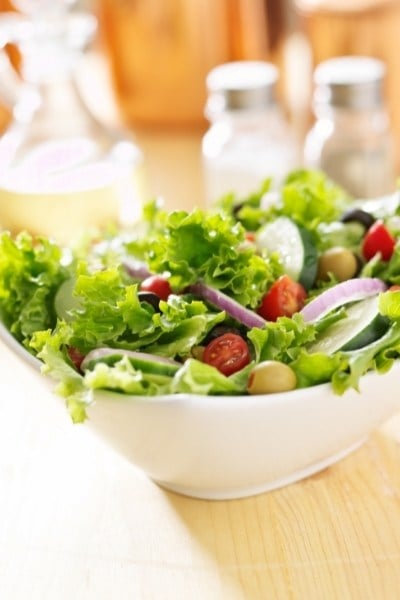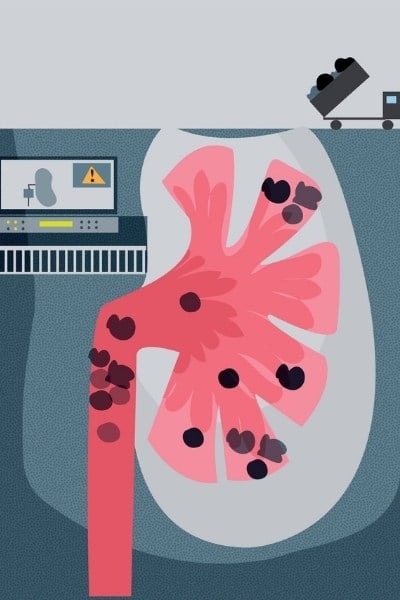As you may know, vitamins and minerals are crucial micronutrients for good health and disease prevention.

They’re found in various foods but can also be taken as supplements, especially if you suffer from a deficiency.
Two of the most important micronutrients are vitamin K and potassium. While they have different health benefits, some people tend to confuse them.
But why is that? Are potassium and vitamin K similar in any way?
Table of Contents
Are Potassium & Vitamin K The Same?
Potassium and vitamin K are two different micronutrients that come with different health benefits. What’s more, potassium is a mineral while vitamin K is a vitamin, just like the name says.
They are also responsible for different functions in your body, including blood clotting, bone health, and heart health.
These two are also derived from different foods, but there are still some foods that contain both of these nutrients in large amounts.
Can You Check Your Potassium Level at Home?
Why do people confuse potassium and vitamin K?
While potassium and vitamin K are completely different, some people still tend to confuse them. One of the reasons it happens is because the chemical symbol on the periodic table for potassium is K.
As a result, some people might confuse this mineral with vitamin K, as they have the same letter in the name.

But even though it might seem like there’s some connection between the two, these are two completely different micronutrients that contribute to different health benefits.
Increased intakes of both of these micronutrients have also been linked with a reduced risk of fracture and other bone problems.
Because of that, doctors often recommend foods containing both vitamin K and potassium for people prone to these issues.
So this can be confusing and lead people to think that they are one and the same nutrient.
But if you look closely at the benefits each of these micronutrients provides you with, you can clearly see the difference between them.
What do potassium and vitamin K do for your health?
Potassium
Potassium is a mineral that acts as an electrolyte in your body. This means that it helps with basic cells functions as well as keeps your fluid levels balanced.
Potassium also helps with muscle contractions and the transmission of nerve signals throughout your body.
Because of that, potassium deficiency can cause high blood pressure, leading to strokes, kidney stones, and osteoporosis over time.
Potassium’s ability to regulate heartbeat and blood pressure is also incredibly beneficial for the health of your heart.

Consuming a lot of potassium-rich foods can help prevent heart attacks and heart disease from occurring, especially if you’re taking it in from natural sources instead of supplements.
In addition, potassium helps offset the negative effects of dietary salt on your blood pressure, which further protects your heart.
Vitamin K
Vitamin K is a fat-soluble vitamin that helps make various proteins that are needed for blood clotting and the creation of bones in your body.
As a result, getting enough vitamin K is crucial for wound healing and bleeding prevention. Without this vitamin, your body would have trouble healing even small cuts and bruises.
So, make sure to include a lot of foods containing this vitamin in your diet.
What’s more, studies show that increased intakes of vitamin K can improve cognitive health and memory in older adults.
It also helps prevent age- and inflammation-related health conditions, including diabetes and cancer.
While inflammation is important in some cases, chronic inflammation can be very severe. So, it’s especially important to consume a lot of vitamin K-rich foods as you get older to avoid these issues.
Potassium + Vitamin K
Together, potassium and vitamin K can help improve bone health. For example, taking in both of these micronutrients in adequate amounts can prevent bone loss and bone density loss, especially in older individuals.
This reduces your risk of bone fractures and broken bones in the long run. Because of that, ensuring that you eat foods containing both of these nutrients can be really good for the strength of your bones.
What foods contain potassium and vitamin K?

Both of these nutrients are essential, so it’s a good idea to choose foods that contain both of them at once.
When doing that, make sure to eat these foods with some healthy fats, as vitamin K is a vitamin that’s dissolved in fat.
Because of that, it won’t be absorbed as efficiently by your body if you don’t take it in with some fat.
Some of the healthiest foods containing both potassium and vitamin K include:
- Leafy greens, such as collard greens, turnip greens, kale, and spinach
- Broccoli
- Pumpkin
- Legumes, such as soybeans or edamame
- Some fruits, such as blueberries, grapes, and figs
- Nuts, such as pine nuts and cashew
As you can see, there are many foods that contain these two micronutrients in great amounts.
Additionally, most of these foods are also high in antioxidants, which help flush out free radicals from your body.
This prevents oxidative stress and damage to your cells, lowering your risk of chronic conditions like heart disease, cancer, and diabetes.
So, you’re getting even more out of these foods than sufficient amounts of potassium and vitamin K.
Don't know which foods are high in potassium? Read our article, 15 Best Food Sources of Potassium. We also have a guide to this important mineral: Potassium 101: All You Need To Know About Potassium.
Is it safe to take potassium and vitamin K supplements?
Generally, vitamin K and potassium supplements are healthy for most people. But there are some conditions that impact the absorption and removal of these micronutrients from your body.
For example, people with kidney problems should avoid taking in too much potassium and definitely stay clear from supplements.

This is because their kidneys aren’t able to remove excess potassium from their bodies. In the same way, kidneys are responsible for flushing out vitamin K too.
So, keep that in mind if you’ve been diagnosed with kidney disease.
Conclusion
While they might have some of the same health benefits, potassium and vitamin K are actually two very different micronutrients.
They don’t have the same health benefits and contribute to different bodily functions and processes on a daily basis.
But they’re both incredibly important for your health, so make sure to include potassium- and vitamin K-rich foods in your diet as much as possible.
